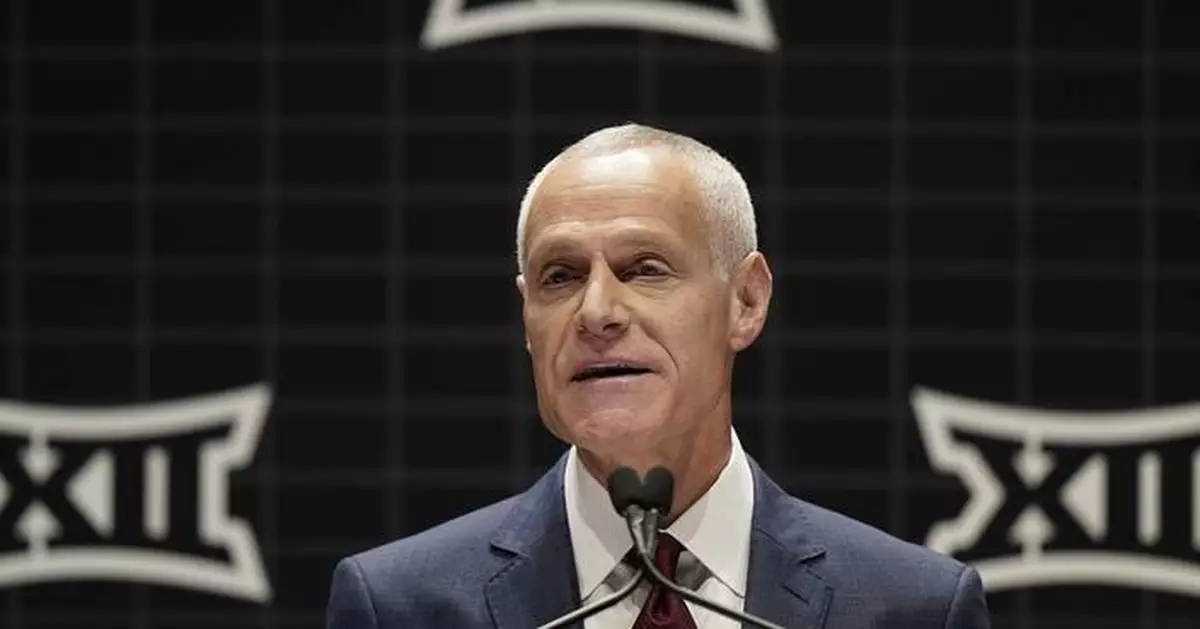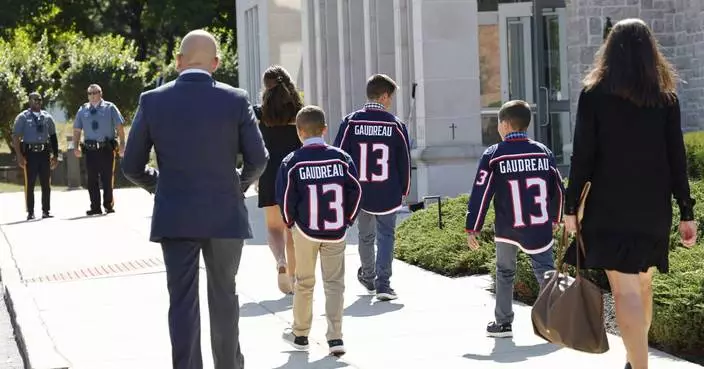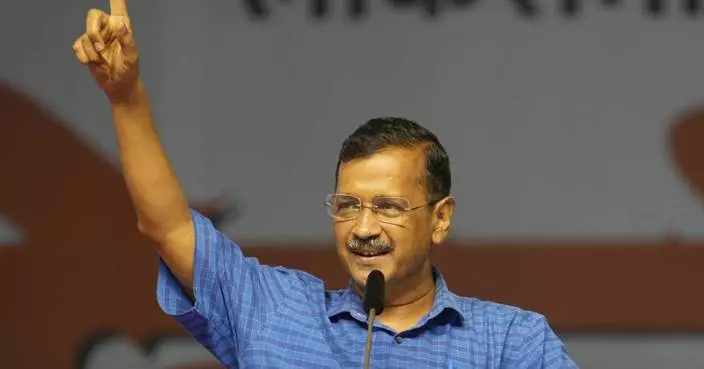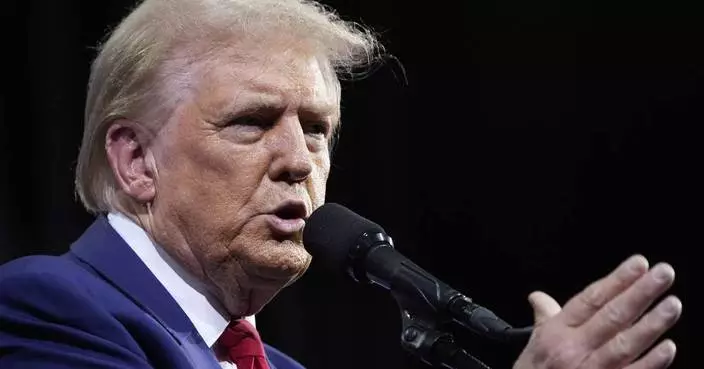As Big 12 Commissioner Brett Yormark steps up discussions in the conference about adding UConn, the question isn't so much why invite the Huskies as why do it now.
“There has never been a better time than right now to be part of the Big 12,” Yormark said in July at Big 12 football media days.
But with college sports entering a period of unprecedented transformation — superconferences, an expanded College Football Playoff and a new plan to compensate athletes — what's the rush to add a school that has conceded it needs six years to get its football program Big 12-ready?
UConn athletic director David Benedict recently traveled to Dallas to pitch the Big East school to Big 12 administrators. Conference ADs and presidents heard from the league's media consultants on Monday and plan to further discuss Yormark's latest vision.
To add a new member, 12 of the 16 Big 12 schools would need to be in favor. According to several people familiar with the situation who spoke with The Associated Press on condition of anonymity because the discussions are private, Yormark still has convincing to do among his members that adding UConn is a sound move and the Big 12 needs to act fast.
The apprehension is understandable.
The No. 1 priority among everyone in college sports right now is grasping the ramifications of the House v. NCAA settlement. The $2.8 billion deal to settle three federal antitrust lawsuits against the NCAA and power conferences also includes a groundbreaking plan to allow schools to share up to $21 million per year with their athletes as soon as 2025-26.
A hearing is scheduled for Sept. 5, when the judge overseeing the case could grant preliminary approval. Final approval is still months away.
There are scores of thorny questions about how revenue-sharing will be implemented and what impact it will have on every aspect of college sports. This is taking up a lot of time for administrators, including those in the Big 12 who haven't even watched the four newest Big 12 schools — Arizona, Arizona State, Colorado and Utah — kick off their first football seasons.
The paint has not even dried on Yormark's last renovation project and he is calling for the contractors again.
The Big 12 is all but guaranteed a spot for its champion in the new 12-team playoff, but with the Southeastern Conference swiping Texas and Oklahoma, the conference's case for landing multiple bids is built on quality depth making up for a lack of blue-blood contenders.
The plan being presented to the Big 12 on UConn calls for the Huskies' powerhouse basketball programs (17 national championships combined, including the last two men's titles) and other sports to join as soon as possible. UConn's struggling football program, currently operating as a major-college independent, would not join until 2031 after significant investment by the school.
The Huskies had five winning football seasons as a member of the old Big East, but since 2011 they have reached a bowl twice and never finished better than 6-7.
The Big 12 is trying to bill itself as the conference with no clunkers, a claim not even the top-heavy Big Ten can make. Even if you believe UConn can become a competent football program the way Kansas did after years of ineptitude, why bet on it sight unseen?
It also should be noted that woeful Colorado was the Pac-12's Kansas for the last 15 years. For all the excitement about Deion Sanders at CU, there are still questions about whether the Buffaloes make Big 12 football better.
Also, there is no line of suitors for the Huskies. The Atlantic Coast Conference probably would have interest if lawsuits by Florida State and Clemson trigger a mass exodus, but those cases are barely off the ground, with no resolution in sight.
Still, Yormark is convinced college basketball is undervalued. Supercharging already excellent Big 12 basketball while UConn is part of a strategy to unlock that value in the next round of media rights deals.
Maybe he's right, but the current deal doesn't expire until 2031.
There is no doubt Yormark's wheeler-dealer instincts have been good for the Big 12 since he took over in 2022. Being proactive under Yormark is one of the reasons why the Big 12 has 16 teams and the Pac-12 currently has two.
Yormark is convinced UConn is a good long-term investment for the Big 12 while swiping a potential lifeline from the ACC. Both are looking up at the Big Ten and SEC on and off the field.
“Two years later, I guess you could say we’re still open for business,” Yormark said in July.
Yormark was rebuked by his membership when he was interested in adding Gonzaga. UConn makes more sense but is no slam dunk. And there might be more important business to attend to.
Follow Ralph D. Russo at https://twitter.com/ralphDrussoAP
AP college football: https://apnews.com/hub/college-football
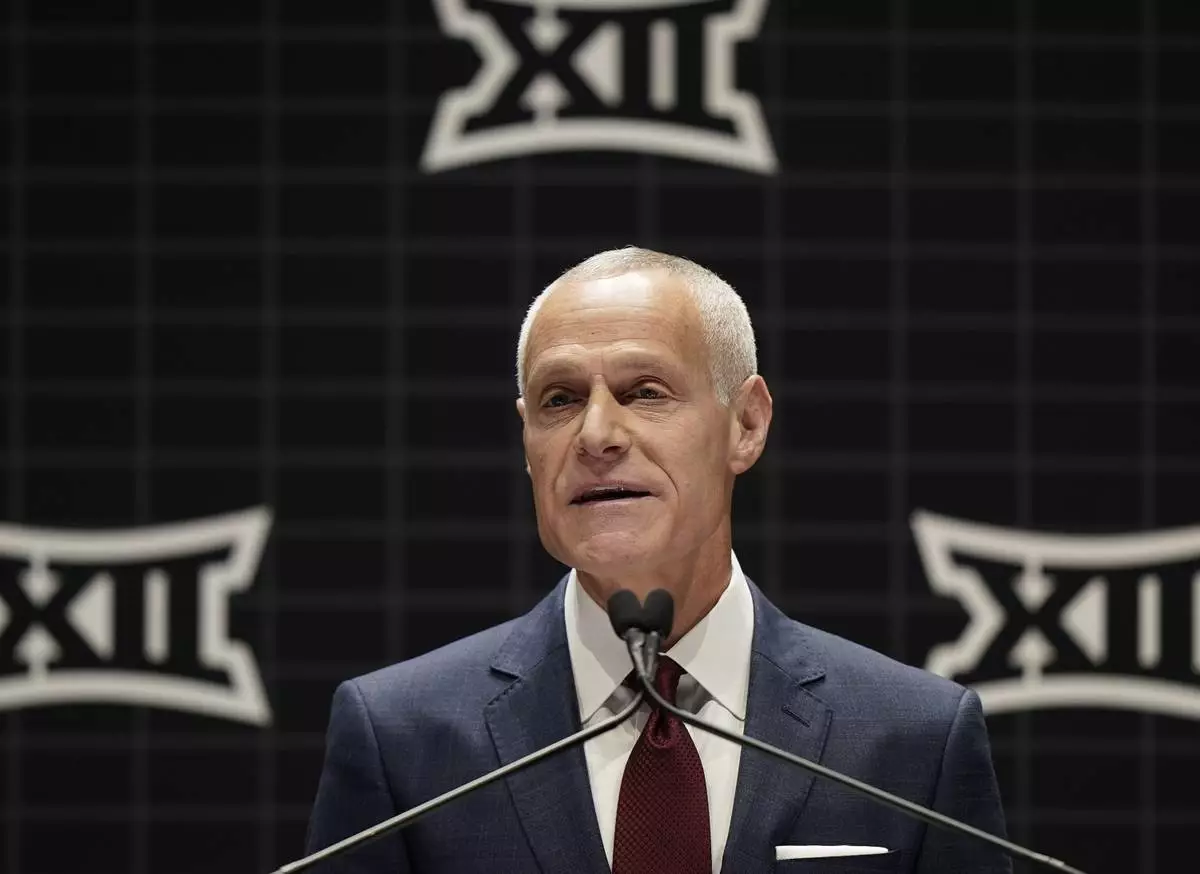
FILE - Big 12 Commissioner Brett Yormark addresses the media, Oct. 17, 2023, in Kansas City, Mo. (AP Photo/Charlie Riedel, File)
Aircraft assembly workers walked off the job at at Boeing factories near Seattle and elsewhere early Friday after union members voted overwhelmingly to go on strike.
Boeing is just the latest business to grapple with union workers over issues including wages and benefits like health care.
Here's a look at some recent company negotiations with their unions.
Late last year the United Auto Workers union overwhelmingly ratified new contracts with Ford and Stellantis, along with a similar deal with General Motors, that would raise pay across the industry and force automakers to absorb higher costs.
The agreements, which run through April 2028, ended contentious talks that began in the summer of 2022 and led to six-week-long strikes at all three automakers.
The new contract agreements were widely seen as a victory for the UAW. The companies agreed to dramatically raise pay for top-scale assembly plant workers, with increases and cost-of-living adjustments that would translate into 33% wage gains.
Top assembly plant workers were to receive immediate 11% raises and would earn roughly $42 an hour when the contracts expire in April of 2028.
Under the agreements, the automakers also ended many of the multiple tiers of wages they had used to pay different workers. They also agreed in principle to bring new electric-vehicle battery plants into the national union contract.
UPS workers that are members of the Teamsters union approved a tentative contract with the package delivery company last year. The run up to the approval was not smooth though, with contentious labor negotiations that threatened to disrupt package deliveries for millions of businesses and households nationwide.
After negotiations broke down in early July 2023, Atlanta-based UPS reached a tentative contract agreement with the Teamsters just days before an Aug. 1 deadline.
At the time the tentative agreement was struck, full- and part-time union workers were set to get $2.75 more per hour in 2023, and $7.50 more in total by the end of the five-year contract. Starting hourly pay for part-time employees also got bumped up to $21, but some workers said that fell short of their expectations.
UPS said at the time that by the end of the new contract, the average UPS full-time driver would make about $170,000 annually in pay and benefits. It was not clear how much of that figure benefits accounted for.
As part of the deal, the delivery company also agreed to make Martin Luther King Jr. Day a full holiday, end forced overtime on drivers’ days off and stop using driver-facing cameras in cabs, among a host of other issues. It eliminated a two-tier wage system for drivers and tentative deals on safety issues were also reached, including equipping more trucks with air conditioning.
Earlier this month video game performers reached agreements with 80 individual games that have signed interim or tiered budget agreements with the performers’ union and accepted the artificial intelligence provisions they have been seeking.
The performers had been striking for over a month.
Members of the Screen Actors Guild-American Federation of Television and Radio Artists began striking in July after negotiations with game industry giants that began more than a year and a half ago came to a halt over AI protections.
The interim agreement secures wage improvements, protections around “exploitative uses” of artificial intelligence and safety precautions that account for the strain of physical performances, as well as vocal stress. The tiered budget agreement aims to make working with union talent more feasible for independent game developers or smaller-budget projects while also providing performers the protections under the interim agreement.
Last month thousands of hospitality union workers on the Las Vegas Strip reached a tentative deal with the Venetian and Palazzo resorts, a first for employees at the sprawling Italian-inspired complex that opened 25 years ago.
The Culinary Workers Union announced on the social platform X that the deal came together after a year of negotiations. It covers over 4,000 hotel and casino workers, from housekeepers and cocktail servers to bartenders and porters.
Bethany Khan, a union spokesperson, said the deal mirrors the major wins secured in recent contracts awarded to 40,000 hospitality workers at 18 Strip properties owned or operated by casino giants MGM Resorts International, Caesars Entertainment and Wynn Resorts.
Those wins included a 32% pay increase over five years, housekeeping workload reductions and improved job security amid advancements in technology and artificial intelligence.
The bump in pay under those contracts will amount to an average $35 hourly wage by the end of the contracts, according to the union. Workers at these properties were making about $26 hourly with benefits before winning their latest contracts in November.
Unions representing 85,000 health care workers reached a tentative agreement with industry giant Kaiser Permanente in October 2023 following a strike over wages and staffing levels.
The deal included setting minimum hourly wages at $25 in California, where most of Kaiser’s facilities are located, and $23 in other states. Workers would also see a 21% wage increase over four years.
The lead up to the tentative agreement included a three-day strike involving 75,000 workers in multiple states.
The tentative agreement also included protective terms around subcontracting and outsourcing, as well as initiatives to invest in the current workforce and address a staffing crisis.
Hollywood’s actors voted to ratify a deal with studios in December 2023 that ended their strike after nearly four months, bringing an official finish to a labor strife that shook the entertainment industry for most of last year.
Members of the Screen Actors Guild-American Federation of Television and Radio Artists approved a three-year contract.
Control over the use of artificial intelligence was the most hard-fought issue in the long, methodical negotiations. The contract called for a 7% general pay increase with further hikes coming in the second and third years of the deal.
The agreement also included a hard-won provision that temporarily derailed talks: the creation of a fund to pay performers for future viewings of their work on streaming services, in addition to traditional residuals paid for the showing of movies or series.
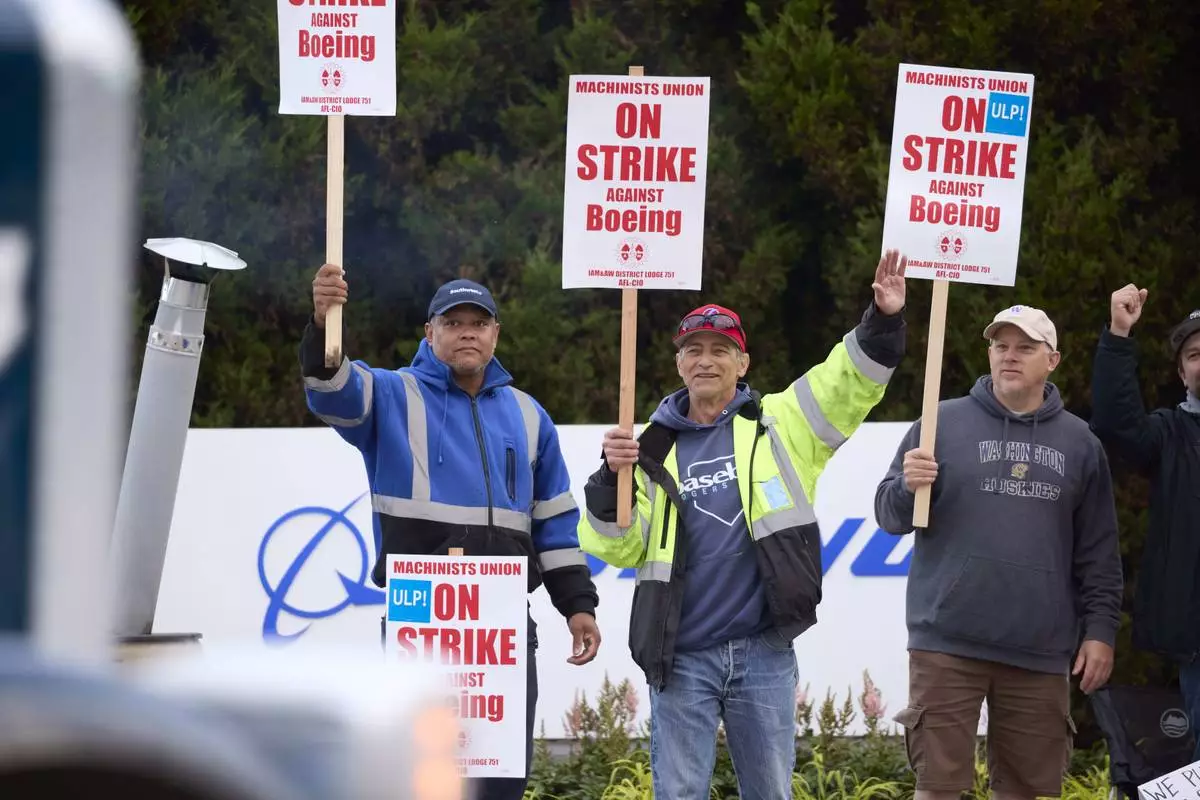
Boeing Machinists Union members Steven Wilson, left, Dave Hendrickson, center,, and Mark Erickson, right, wave to passing traffic while on the picket line at the Renton assembly plant, Friday, Sept. 13, 2024, in Renton, Wash. (AP Photo/John Froschauer)



